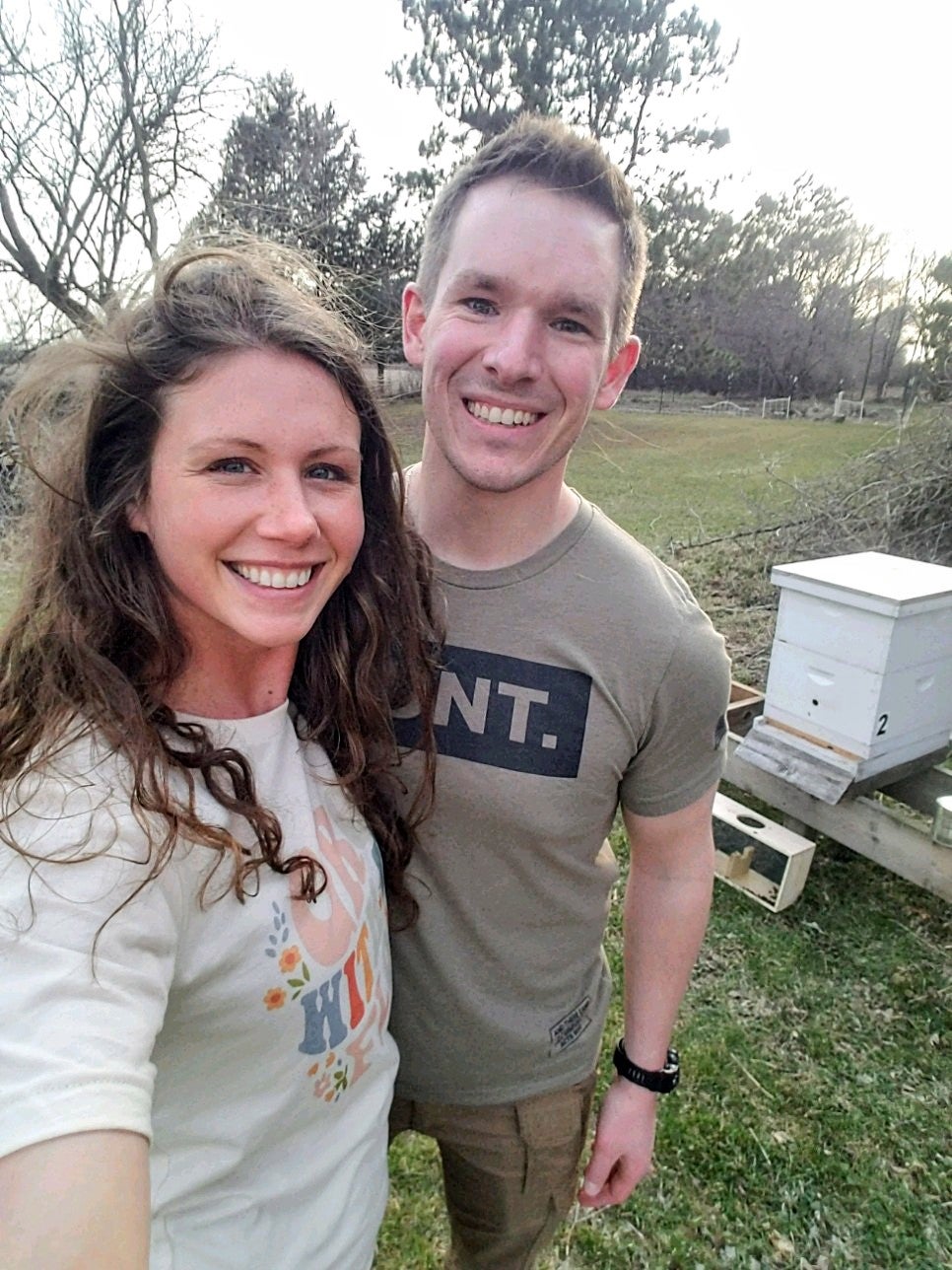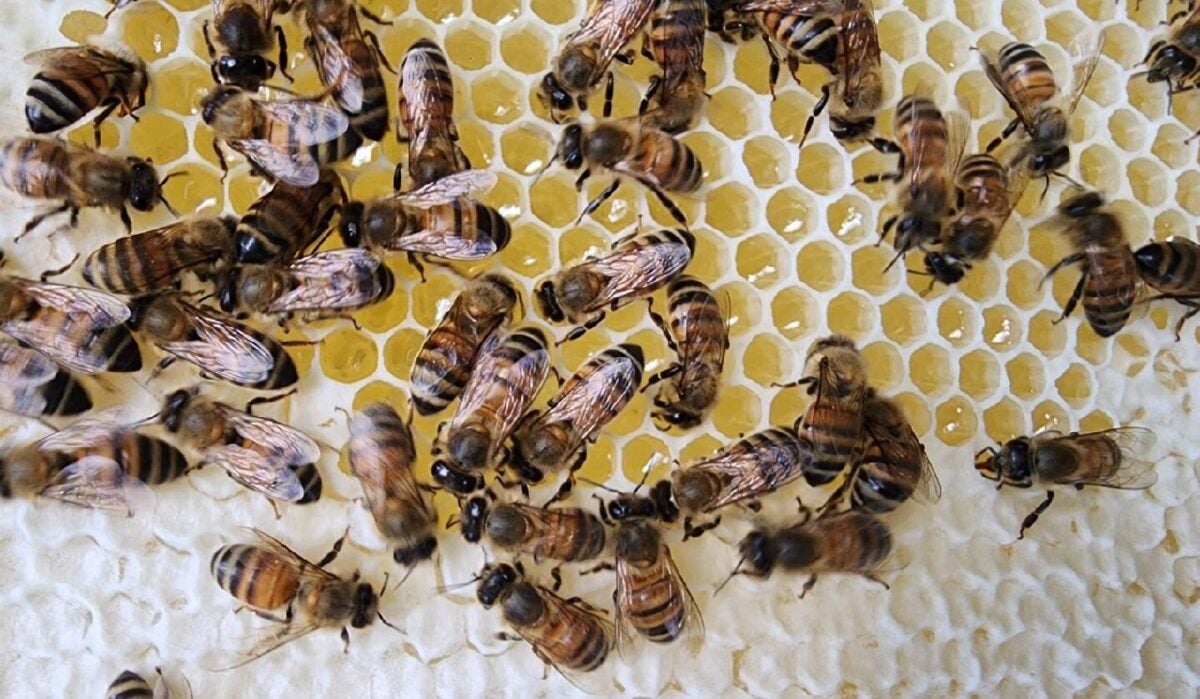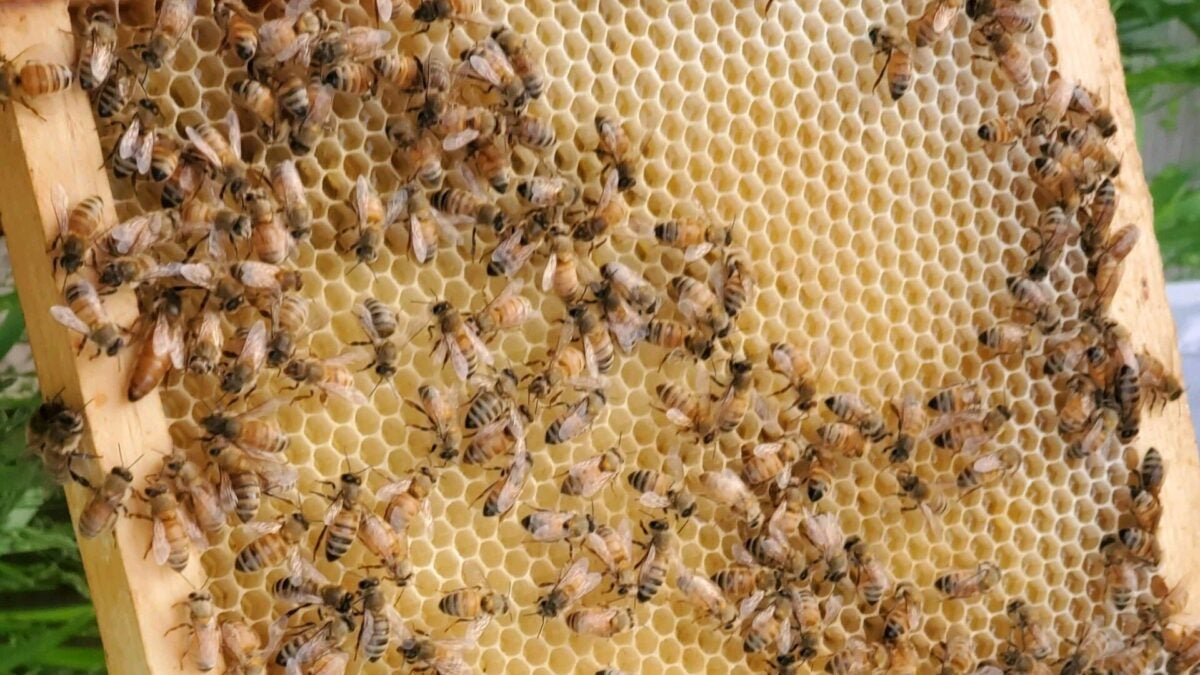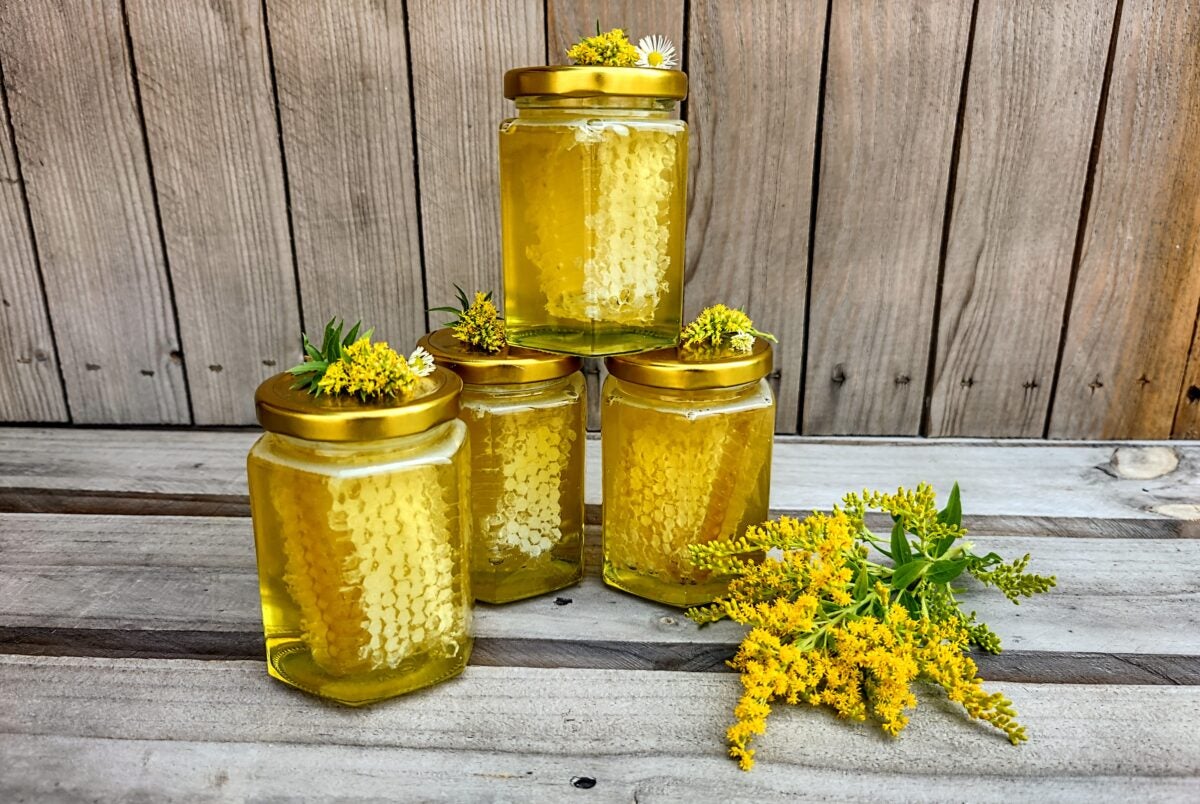Home on the Range #050: Honey, Bees & Beekeeping – How Sweet It Is!
Adam Scepaniak 09.02.23

Here at AllOutdoor we have discussed how being self-sufficient and procuring a lot of your own food – whether it is harvesting game animals from nature or raising them yourself – is not only rewarding, but it is cleaner, healthier food. Plus, you know exactly where it came from. We have mentioned wild turkey, whitetail deer, Mangalitsa pigs, egg-laying chickens, and next on our list of animals you may want to consider keeping are bees. Yes, honeybees! You not only can get honey from honeybees which is obvious, but you also are ensuring your garden flourishes more from these natural pollinators. Also, as a source of additional income you can sell their honey, beeswax, and the bees themselves. Let’s dive into the pros and cons of beekeeping to see if you want to become a beekeeper!
“Home on the Range” Series Coverage on AllOutdoor
- Home on the Range #049: Still Hunting – Ground Hunting Deer w/o a Blind
- Home on the Range #048 – Competition Shooting to Improve your Hunting
- Home on the Range #047: Ground Hunting Blinds – Hunt Deer at Eye Level
- Home on the Range #046: Creating a Deer Management Plan
- Home on the Range #045: World’s Best Pork – Old World, Mangalitsa Pork
Welcome to our reoccurring series of “Home on the Range.” Here, we would like to share all of our experiences for those who may be homesteading, living off the land, hunting, farming, ranching, and truly investing in nature and the great outdoors. The ability to provide for yourself and your family can be tremendously rewarding and simultaneously difficult at times. So, in “Home on the Range” we want to share our different exploits so you can learn and hopefully we can receive your feedback along the way as well.
Honey, Honeybees & Beekeeping – The “Good Honey”
If you don’t downright have an aversion, fear, or allergy to bees, we highly recommend you entertain keeping bees; “bee a beekeeper.” When it comes to beekeeping there are a lot of reasons to get into this passionate hobby. For some, it is how therapeutic it can be. Similar to how people can feel entranced and relaxed hearing moving water near a stream or waterfall, the soft buzzing or hum of bees diligently gathering pollen, honey, and working in unison like a masterfully-directed orchestra can be equally relaxing. There are many other reasons that might entice you to give it a try:
- It’s Delicious! – Honey is absolutely delectable. Moreover, it is a phenomenal substitute for white sugar in baking and cooking for a more natural and light taste of sweetness to whatever you might be whipping up in the kitchen.
- Multiple End-Products – Most everyone thinks of honey, but there is also beeswax, pollen, and the bees, themselves. Plus, with honey you have a whole new world of baked goods you can make that are off the beaten path of most people’s palette, but is utterly savory and memorable.
- Pollinators – Introducing pollinators to your environment benefits local fauna and innumerable plants. It will increase the likelihood of success for your own garden, too, because so many plants require insects to pollinate them.
- Self-Sufficiency – There is a great amount of pride and resiliency in creating food you don’t need to buy in a grocery store. If you can bee a beekeeper, then you no longer need to buy honey or white sugar in a grocery store anymore (if you so choose). Your ability to bake, cook, or produce isn’t tied to the inventory of a store. You are that much more empowered and independent.
- Enzymes – By eating honey local to you, it reduces your likelihood for allergies because of the enzymes present in cold-filtered, raw honey. Store-bought honey is, more often than not, heat-filtered (faster manufacturing process), but that kills off all of the good, natural, allergy-resistant enzymes.
Honey, Honeybees & Beekeeping – The “Bad Honey”
We don’t want to paint a false picture that beekeeping is all upside and no downside. There are some things to account for if you want to get into beekeeping. Not all negatives, but some things we wish we knew when we started. Let’s take a look at some finer points people might overlook when they dive into beekeeping.
- Initial Start-Up Cost – While you can sometimes find more affordable gear to get started through garage sales, flea markets, or even friends, if you aren’t so fortunate to find a bargain, new beekeeping equipment can add up quickly: bee boxes, bees, frames, beekeeping suit, and many other tools of the trade.
- Foreigners – Honeybees are not always indigenous to the places that people are wanting to raise them. So, they need to acclimate to their new environment, and may not always survive winter due to a multitude of factors like the breed of bee, the amount of honey they have going into winter, length of winter, coldness of winter, etc.
- Checking In – Be sure to check your honeybees every couple weeks in the spring. When the honey flow is going strong (late summer/fall), you will want to check them every week to know if they need more room (additional boxes and/or frames). If they outgrow their living space, they might swarm outside their hive and leave altogether!
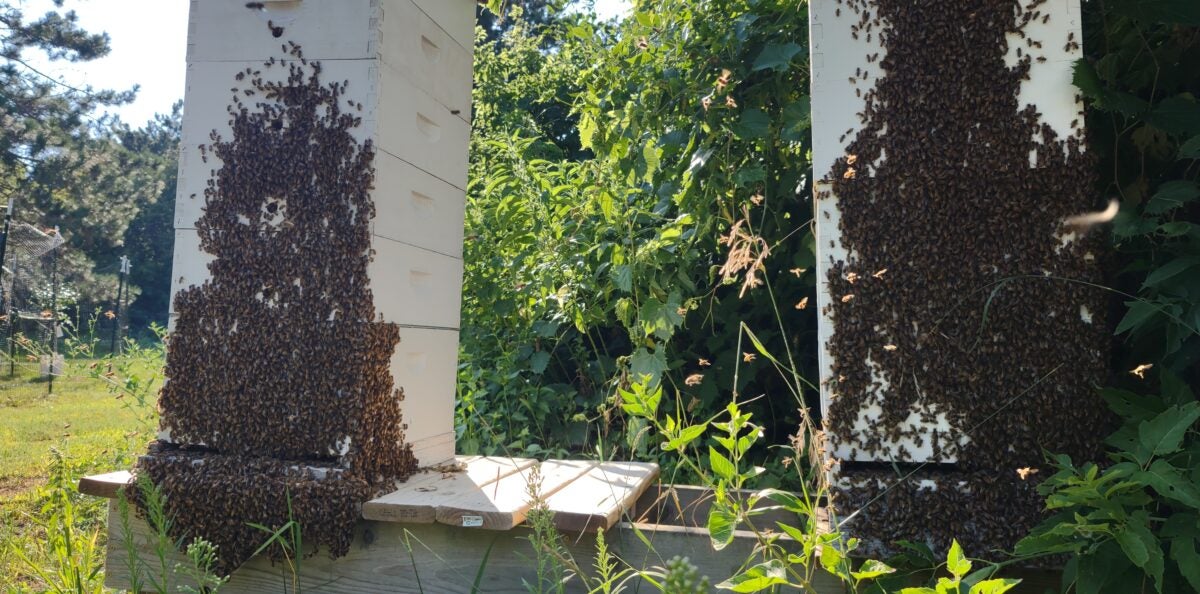
Honey, Honeybees & Beekeeping – The Final Honeypot
So, as you can see as we have laid it out there are a lot more positives to beekeeping than there are negatives. Moreover, if you do a fair amount of research and give yourself some grace, this can become not only a therapeutic hobby, but a money-making one as well. Some people make beeswax soap, candles, lip balm, candies, caramels, bread, barbeque sauce, or simply jar it because it is so decadent and delicious! Also, if you have an adequate bee suit or choose a friendly bee variety (Italians are our recommended favorite), there is honestly a very low likelihood that you will ever be stung by a bee.
Right now, the honey flow in Minnesota for bees is nearly at its end. So, my Queen Bee (my wife) is harvesting honey, checking hives, and nurturing her battalion of ladies (that numbers in the hundreds of thousands with 4 hives) as winter approaches. After a full season of following their rhythm, needs, and watching honeybees effortlessly manage their way through a drought, it is very sweet and rewarding to receive some honey, too. As always, let us know all of your thoughts in the Comments below about beekeeping! We will look to continue this conversation in future weeks of “Home on the Range.”
